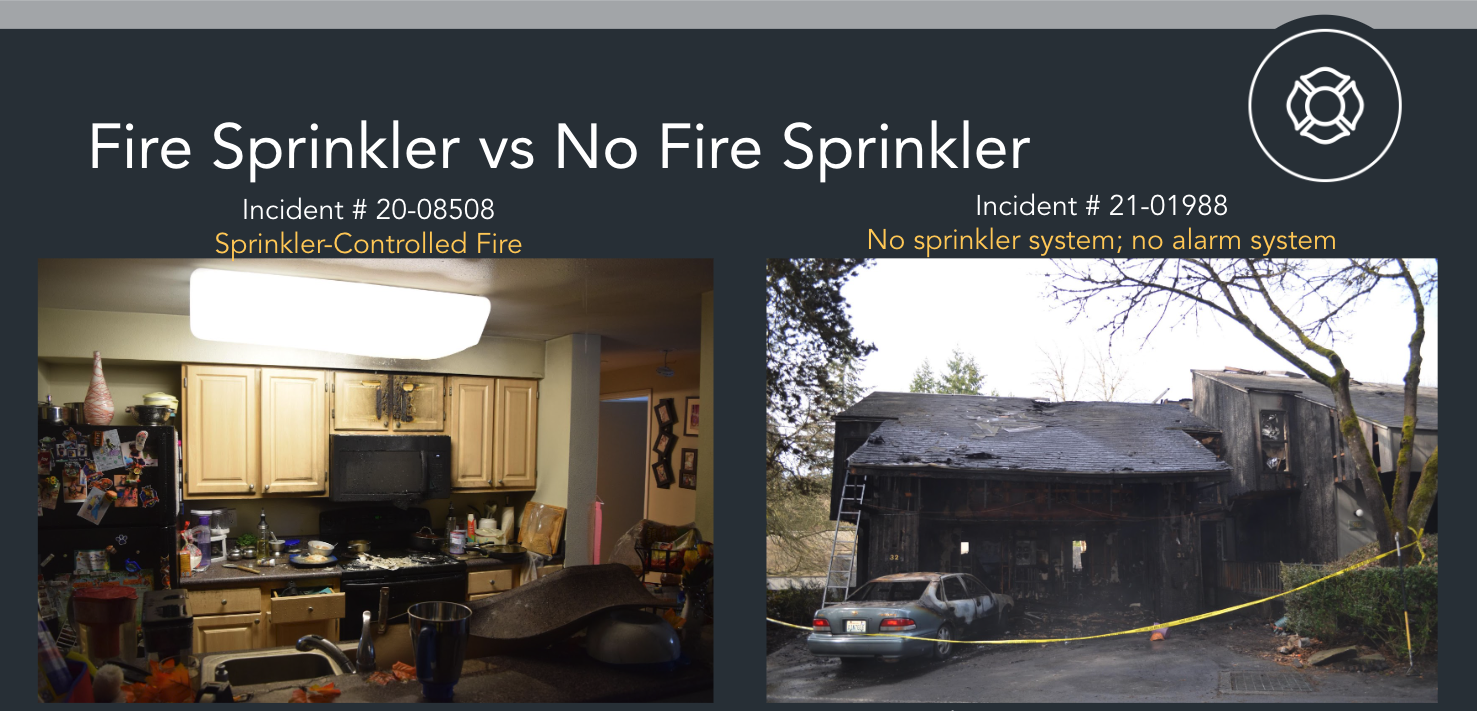When the Canadian fire service proposed changes to the 2010 edition of the National Building Code of Canada to mandate sprinklers in all new homes, opponents claimed the installation costs were not warranted, based on an over-simplified analysis – cost to install versus number of lives saved. The analysis failed to consider the sum of the benefits of home fire sprinklers.
After decades of living with sprinklers in Canada, there is now greater understanding of the benefits of home fire sprinklers, from giving occupants more time to escape a fire and, therefore, saving lives, to reducing risks to firefighters, to lowering property damage, and limiting environmental impacts.
We also know that the cost of installing home fire sprinklers can be better analyzed and justified by considering incentives that benefit developers.
The scales are now clearly tipped to the net benefit of installing sprinklers in all new homes.
Several Canadian communities have worked with developers to provide incentives when all new homes are protected with sprinklers in a subdivision, such as reduced fees, reduced water supply requirements, or more dense housing. Another example of an incentive is the reduction of onerous design standards such as fire walls in the codes when sprinklers are present.
This type of collaboration between municipalities and developers building new subdivisions is where the largest growth in home fire sprinkler installations are occurring in Canada.
However, incorporating a more fulsome review of the benefits of sprinklers is necessary. Benefits start with the obvious reduction in fatalities. Modern fires burn hotter and faster, and are proving to be more deadly than fires 20 years ago. Contents and home design standards have changed and sprinklers have proven their worth. There have been no deaths in a sprinklered home in Canada dating back to the 1990s. But let’s consider more benefits such as injury reductions. The 2012 Sunnybrook Health Sciences Centre study in Canada shows the savings on hospital costs from burn and smoke inhalation injuries. It found that the average cost to treat a burn patient was $84,678. When all resources were accounted for, including rehabilitation, transportation and property loss, this number increases to $3.6 billion over the study period. The second phase of this study found that lives shortened or lost in fires and their potential earnings cost the Canadian economy $7.6 billion.
Single-family homes fires represent the largest property category of fires in Canada each year; a reduction in residential fires reduces the number and severity of firefighter injuries and reduces the incidence of occupational cancers. These facts further move the balance in favour of home fire sprinklers.
Costs savings to homeowners in insurance premium reductions must also be factored into the cost balance. Proactive insurers such as Co-operators, a member of the Home Fire Sprinkler Coalition, offer premium reductions to homeowners who install home fire sprinklers. Over the time span of home ownership these savings can grow considerably. Where home fire sprinklers are installed, when a fire does occur, property loss is significantly reduced, and homeowners experience less down time and loss from the fire. Home fire sprinklers extinguish or contain the fire to the room of origin. Often the homeowner can return the same day, after an all clear from the fire department.
In 2010, FM Global released its first review of the environmental impacts of fires and the effects of fire sprinklers. When sprinklers were present greenhouse gas emissions were cut by 97.8 per cent, fewer materials end up in a landfill, and there are fewer pollutants in the ground water – all greater benefits to society.
We can no longer look only at the simple equation of cost to install home fire sprinklers versus the number of lives saved; this narrow thinking refuses to consider more than 30 years of living with sprinklers. When we consider that incentives reduce install costs and the cumulative societal benefits of sprinklers the answer is clear: Sprinklers just make sense.

